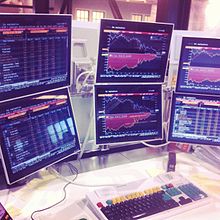In the fast-paced world of day trading, having access to real-time information and data is crucial for making informed investment decisions. This is where premarket scanners come into play. In this article, we will explore the definition, purpose, and benefits of premarket scanners for day traders.
We will also delve into how these scanners work, the key features and criteria for choosing one, and review some of the top premarket scanners available in the market. Additionally, we will take a deep dive into a case study of a successful day trader who incorporates a premarket scanner into their trading strategy.
By the end of this article, you’ll have a clear understanding of how premarket scanners can enhance your day trading experience and ultimately improve your profitability.
Introduction to Premarket Scanners for Day Trading
Premarket scanners are powerful tools for day traders that provide valuable insights before the market officially opens. By aggregating real-time data from various sources like news feeds and social media, these scanners help identify stocks with potential price movements.
Traders use this information to make informed investment decisions, entering trades early to maximize profit opportunities. With customizable filters and consolidated data, premarket scanners offer convenience and efficiency in analyzing the market landscape.
Overall, these tools give day traders a competitive edge by accessing critical information and enhancing their trading strategies.
How Premarket Scanners Work
Premarket scanners are advanced tools that analyze real-time market data to help traders identify potential trade opportunities before the stock market opens. These scanners gather information from various sources such as financial news websites, social media platforms, and stock exchanges.
Using complex algorithms, premarket scanners filter out noise and analyze factors like volume spikes, price movements, and news events. By doing so, they generate a list of stocks that meet specific criteria set by traders for day trading.
In summary, premarket scanners leverage cutting-edge technology to collect and process vast amounts of data. They provide actionable insights, helping traders make informed investment decisions before the market opens.
Key Features and Criteria for Choosing a Premarket Scanner
A good premarket scanner should offer real-time updates and news alerts to keep day traders informed about market developments that can impact stock prices. Traders need customizable watchlists and filters to focus on stocks that align with their strategy, based on volume thresholds, price movements, or other criteria.
An intuitive user interface helps traders navigate and analyze data efficiently. Reliable customer support ensures prompt resolution of technical issues or questions. Consider these key features when choosing a premarket scanner for successful day trading.
Benefits of Using a Premarket Scanner in Day Trading
Day traders can greatly benefit from using a premarket scanner, a tool that offers valuable data analysis and increased efficiency. By analyzing real-time market data before the opening bell, traders gain insights into potential trade opportunities and make informed decisions based on concrete information.
The scanner automates the process of gathering relevant data, saving time and effort. Traders can focus on analyzing the data and executing trades rather than sifting through multiple sources.
Additionally, premarket scanners enhance risk management and trade planning by allowing traders to proactively plan their trades and set appropriate entry and exit points based on real-time market sentiment.
Incorporating a premarket scanner into day trading strategies empowers traders to stay ahead of the game, make more informed decisions, and achieve greater success in today’s dynamic financial markets.
Top Premarket Scanners for Day Traders
Premarket scanners are essential tools for day traders, providing real-time market data and helping identify potential trading opportunities before the opening bell. In this section, we will explore and compare some of the leading premarket scanners available in the market.
We’ll consider factors such as ease of use, reliability, pricing plans, key features like customizable watchlists and advanced filtering options, and user feedback. By evaluating these scanners comprehensively, we aim to assist you in making an informed decision that aligns with your day trading strategy.
Let’s dive into the world of premarket scanners and discover how they can enhance your trading experience.
Case Study: Successful Day Trader’s Experience with a Premarket Scanner
In this case study, we explore the journey of a successful day trader who has effectively incorporated a premarket scanner into their trading strategy. We begin by introducing the trader, discussing their unique style and goals.
Then, we provide a step-by-step process for using a premarket scanner, including setting it up, creating personalized filters, analyzing data, and executing trades based on the insights gained.
By following these strategies, traders can leverage the power of premarket scanners to make informed decisions and increase their chances of success in the fast-paced world of day trading.
Conclusion: Incorporating Premarket Scanners into Day Trading Strategies
Premarket scanners have become essential tools for day traders, offering valuable insights and enhancing decision-making capabilities. By identifying potential trading opportunities before the market opens, these scanners save time and help traders focus on high-potential stocks.
Integrating premarket scanners into daily routines improves overall performance by providing real-time data for informed decision-making.
However, it’s important to remember that premarket scanners should be used alongside continuous learning and adaptive strategies. Day trading requires staying ahead in a rapidly changing market, which necessitates ongoing education about technical indicators, chart patterns, economic news releases, and other factors influencing stock prices.
By combining knowledge with scanner insights, traders can refine their strategies and adapt to evolving market conditions.
[lyte id=’6-k2AqAGsag’]


